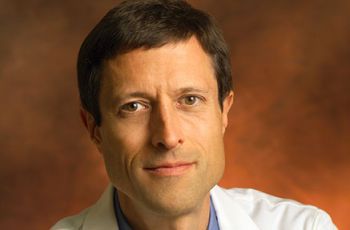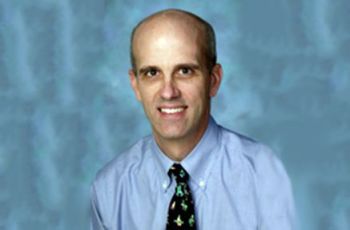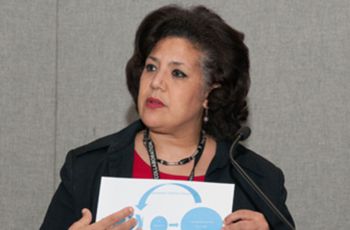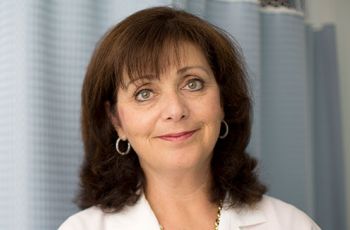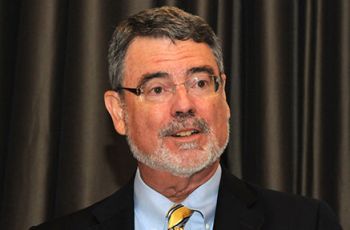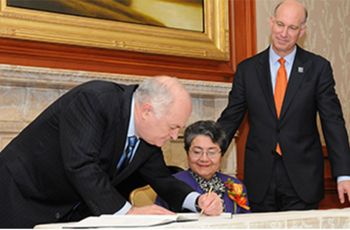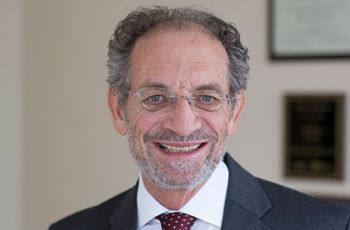News Archive
Neal Barnard, M.D., adjunct associate professor of medicine, was interviewed by The Huffington Post for an article on whether sleep has a connection to Alzheimer's disease.
Stephen Teach, M.D., professor of pediatrics, was featured in The Washington Informer for a story on D.C. Mayor Vincent C. Gray's plan to improve the health of District residents. During a Nov.
The George Washington University is pleased to announce the establishment of the Rodham Institute for Healthcare Provider Education to Eliminate Disparities. The Institute, which is housed within the GW School of Medicine and Health Sciences, is named in honor of the late Mrs. Dorothy E. Rodham…
Neal Barnard, M.D., adjunct associate professor of medicine, was featured on The Dr. Oz Show, weighing in on a new trend in weight-loss: yacon syrup.
Rachel Brem, M.D., vice chair and professor of radiology, was mentioned in an article in The Georgetowner about the 10th Annual Living in Pink Luncheon on Nov. 1, where Brem was honored.
Fitzhugh Mullan, Ph.D., M.D., Murdock Head Professor of Medicine and Health Policy and assistant clinical professor of pediatrics, was featured in Medical Xpress for his research finding New York state received 20 percent of all Medicare's graduate medical education funding while 29 states,…
Paul Kaplowitz, M.D., professor of pediatrics, was interviewed by the Pentagon Post for a story on whether girls in the U.S. are hitting puberty earlier than ever before.
Yolanda C. Oertel, M.D., RESD ’72, and her husband James E. Oertel, M.D., donated $2.5 million to the GW School of Medicine and Health Sciences to establish The Yolanda and James Oertel Professorship for the Medical Humanities.
Rachel Brem, M.D., director of the Breast Imaging and Intervention Center, vice chair of radiology, and professor of radiology, was recognized by the Tigerlily Foundation and Living in Pink for her contributions to breast cancer care, advocacy, and research.
James Griffith, M.D., chair of the department of psychiatry and behavioral sciences, was quoted in a WRGW News story on a new partnership between his department and the Washington Center for Psychoanalysis.
